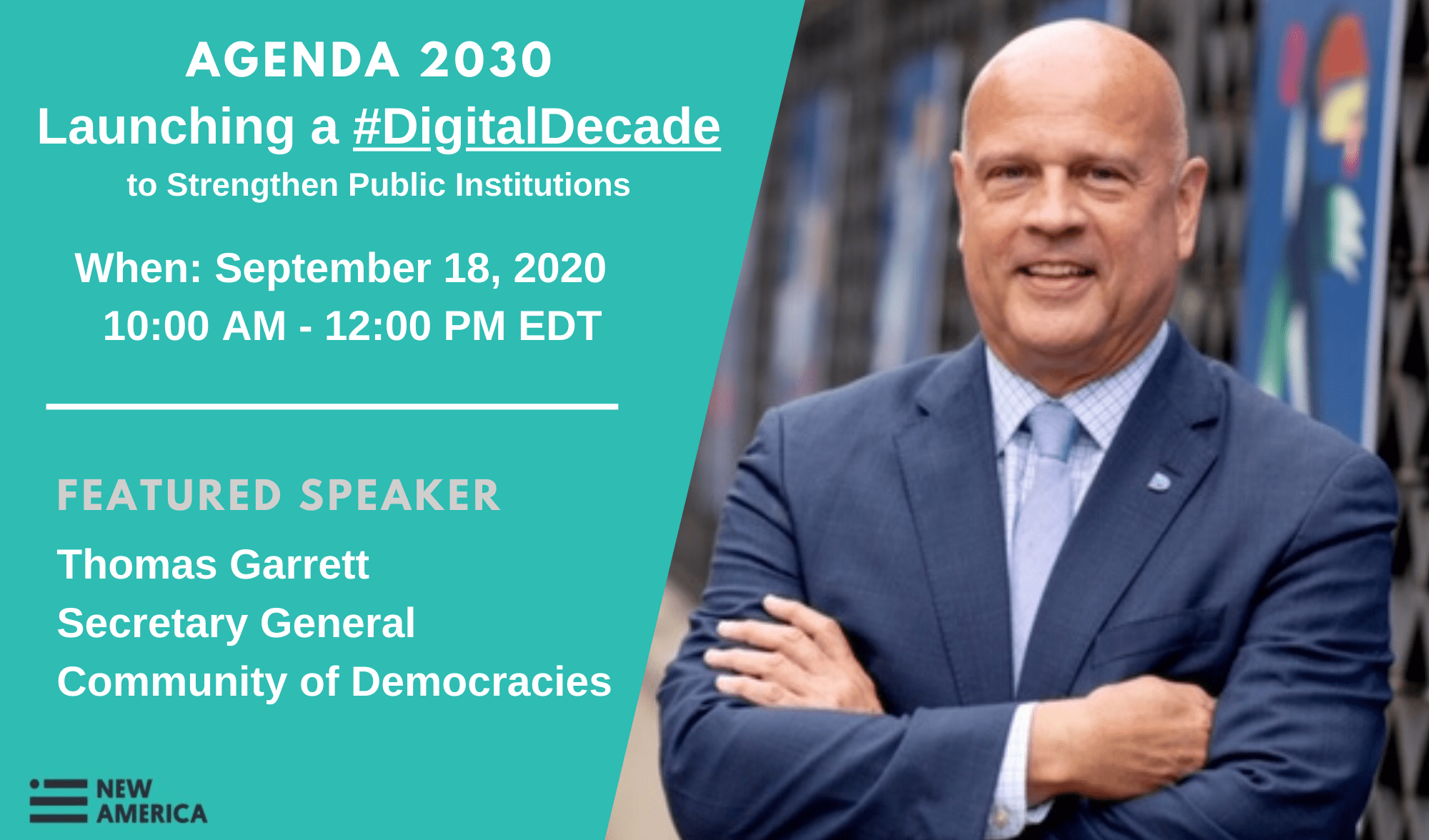

Secretary General’s remarks from the #DigitalDecade event organized by New America
On September 18, 2020, SG Thomas E. Garrett joined the New America’s #DigitalDecade event, which discussed how governments can better respond to the unprecedented demand for digital services during the pandemic.
Remarks by SG Thomas E. Garrett
I am pleased to be a part of this distinguished panel and wish to commend New America and the Digital Impact and Governance Initiative for bringing us this outstanding concept of a Digital Decade.
I join the discussion today to announce a new Community of Democracies Working Group, focused on Democracy and Technology, to be chaired by Georgia.
Georgia joined the Community of Democracies Governing Council last October, bringing valuable experience in many areas, including from its digital journey.
Our Working Groups are composed of nations, civil society, research institutions, and non-governmental actors and drive the implementation of the Strategic Objectives of the Community of Democracies.
At the Community of Democracies, we took note on January 22 of this year, when Secretary-General Guterres delivered his priorities for 2020 to the United Nations.
Listing specific areas of challenge, Guterres named “the dark side of the digital world” as a significant concern. He noted that fast-moving technological change held the promise of benefit to the world but seemed more and more to be used to “incite hate, to oppress and exploit people and to invade privacy.”
There has been a tendency to look with concern, understandably so, at new technology abuses. Yet, there is another side to the digital world, as we see today in our conversation.
Community of Democracies Member States already utilize new technology to benefit citizens, from Estonia’s cloud-based governance to India’s use of digital technology to bring citizens into government service delivery to Georgia’s land registry, which ensures the rule of law and equity.
Among our Governing Council Member States, the United Kingdom, Finland, and Sweden are in the top five places in the Digital Economy and Society Index 2019. Several Governing Council Member States, such as Norway and the Republic of Korea, are often named in the top ten countries of most advanced technology.
Community of Democracies Member States have used digital technology to fight corruption as in Nigeria, deliver health measures to isolated regions as in Mongolia, and facilitate remote voting as in Argentina.
We know that in the last several years trust in democracy has eroded, with implications for governance, human rights, and the future of democracy itself.
- Just this year, the Covid-19 crisis shows the importance of distance-learning capacities. Many countries were insufficiently prepared to meet the challenge of guaranteeing access to education under the pandemic.
- The answer lies in ensuring access to technology, to open source solutions and to free digital contents.
Democratic nations haven’t often enough acted in coordination regarding the rapidly expanding technology field, and we expect this new Working Group to cooperate across borders sharing the experiences of digital development as well as present a democratic alternative to the use of new technology.
Another critical aspect of this Working Group will be the active inclusion of global civil society. We need their thinking on the impact of new technology on human rights and democracy.
The new Working Group will call out specific technology threats that constitute a danger to democracy.
Digital technology is rapidly developing, and democracies have innovated in technology. We hope the Working group activities can more quickly share these gains and learn from one another.
Thank you for including us in this important event, and we look forward to its outcomes.



